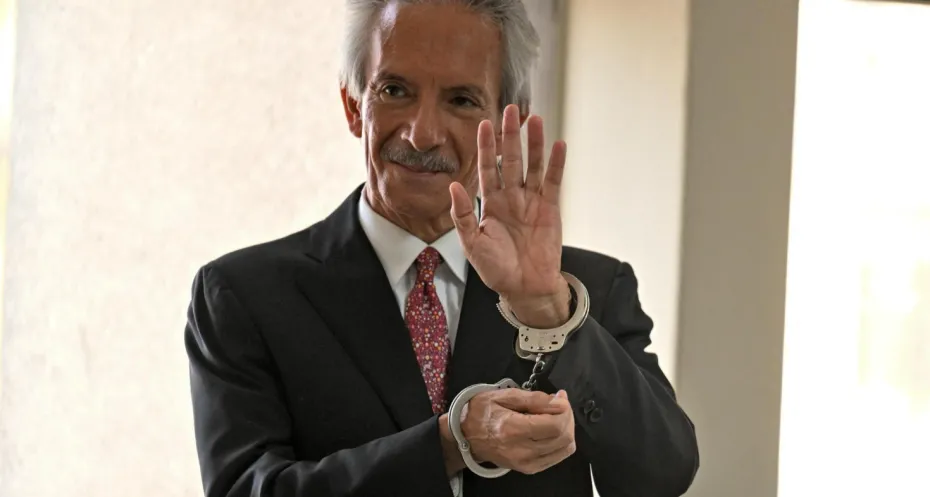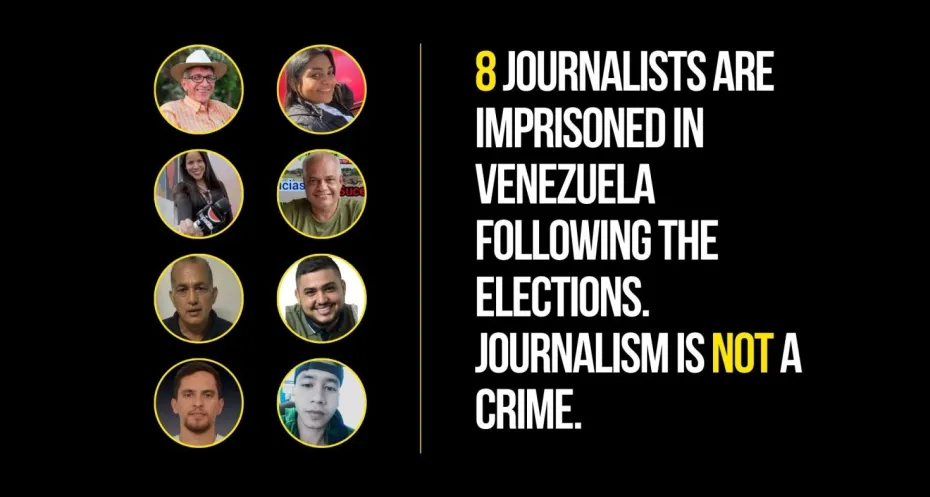Journalist Jones Abiri: tortured and two years in detention

On July 21, 2016, 12 plainclothed officers, guns in hand, stormed into the office of Jones Abiri, editor in chief of regional newspaper Weekly Source. Abiri was arrested and would remain in jail for two years under gruesome circumstances. He received judicial support from Free Press Unlimited's Reporters Respond fund
Jones Abiri is just one name on the seemingly endless list of journalists in Nigeria who have been harassed, abused, intimidated, jailed and gagged for investigating and reporting on sensitive issues that expose the military, politicians, police and other powerful figures.
Accused of being a rebel leader
In Abiri’s case a misunderstanding about a mobile phone in his office seemed to be the motive for the arrest. The phone had been left in his office by visitors who had come to discuss a press release with Abiri and had asked the journalist to charge the device. The visitors left without the phone which, unbeknownst to Abiri, was being tracked by Nigeria's State Security Service because it had been linked to a rebel militia.
Armed officers charged Abiri with being the leader of a rebel militia in Delta State accused of violent threats against oil companies Agip and Shell. In an interview with Nigerian newspaper Premium Times, Abiri denied the allegations vigorously: “If I had been attending any of their meetings, I would not have been operating an office for the production of a newspaper. I would have been in the creeks. They wouldn’t have seen me. More so, I was running a programme, I was a law undergraduate ... As a law undergraduate and mindful of the facts about the illegality of militancy, why would I condescend so low as to be involved in such a thing?”
Press release
According to a press release issued by the State Security Service (SSS), Jones "was as also known as General Akotebe Darikoro, the leader of the Joint Revolutionary Council of the Joint Niger Delta Liberation Force (JNDLF), operating under the nom-de-guerre General-Kill and Bury".
The SSS stated that Jones confessed and owned up to some criminal activities committed by the JNDLF, including the vandalism of an oil pipe, extorting oil companies and threatening to launch missile attacks against selected targets in Abuja, including the presidential villa.
Moreover, Jones was accused of being the mastermind of a hoax military coup against the president. Despite his strong denial, he was taken to the state headquarters of the Department of State Services after his arrest. A month later Abiri was transported to Nigeria’s capital Abuja.
Torture
In Abuja, Abiri was locked up in an unofficial prison facility where he shared a cell of some 40 square metres with 25 other suspects. Among them were suspected members of Biafra’s secessionist movements, as well as possible members of rebel movements in the oil rich Delta state and suspected Boko Haram extremists.
Abiri was blindfolded, beaten with a metal rod and was denied sufficient food and medical treatment.
Abiri later told Premium Times: "My eyes were blindfolded and they asked me to stay glued to the wall. So I did that but did not know what was happening. The next thing I heard was something that struck on my back and I fell down. That is why my spinal cord ... I cannot stand for a very long time." Besides the torture and harassment during his detention, Abiri was denied any contact with his family, friends and lawyer. It took almost two years to bring Abiri in front of a judge.
At one point during Abiri's detention, an official aid of the president of Nigeria on media and publicity said in a statement: "Abiri is not a registered journalist with any of the media professional bodies in the country. Abiri's stock-in-trade and notoriety in the liberalised Nigeria media industry includes fronting as a spokesman for militants engaged in economic sabotage in the Niger Delta region."
Free again
In July 2018, Abiri was finally arraigned before a court of law, when he saw his wife and children for the first time in two years. After the session in court, Jones Abiri was sent to a normal prison. He was released on bail a month later and eventually the court struck out the case citing a lack of jurisdiction.
Through the Reporters Respond programme, Free Press Unlimited facilitated judicial support for Jones, and arranged travel costs for his family to see him in Abuja.
After his detainment Jones Abiri sued the federal government and was awarded 10 million Naira (€24.300) by the Federal High Court in Abuja. Today, Jones Abiri is working again as the editor in chief of the Weekly Source.
Photo: Premium Times.



